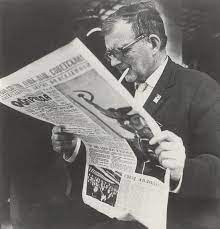Andre Previn: I was told I had no talent
mainFrom a 2015 interview with New Music Box.
Full transcript here.

From a 2015 interview with New Music Box.
Full transcript here.
The Washington Examiner reports that next Tuesday’s celebration…

The CBSO music director Kazuki Yamada, who last…

From the Lebrecht Album of the Week: The…

The thoughtful American composer Richard Wernick died yesterday…

Session expired
Please log in again. The login page will open in a new tab. After logging in you can close it and return to this page.
Comments